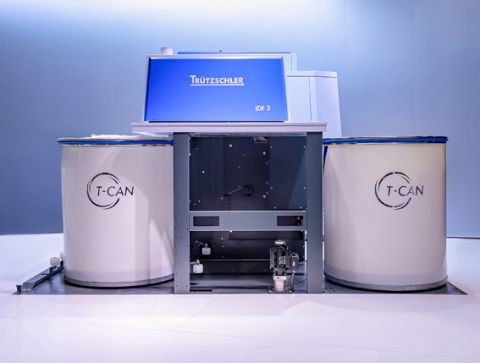The company, of Monchengladbach, Germany, says that sliver cans are almost always transported manually, but increases in labour costs and a lack of operators is making this practice untenable.
Comprising sliver cans and automated guided vehicles (AGVs), T-Can automatically transports cans between cards, breaker draw frames, and finisher draw frames quickly and precisely.
Trützschler says that T-Can minimises the need for the manual handling and transport of sliver cans, supports continuous production (during lunch breaks and night shifts, for instance), and ensures consistent quality, because materials are allocated to positions reliably. By using the system, therefore, mills benefit from lower labour costs, higher machine efficiency, and improved sliver quality.
Chief Sales Officer (CSO) for the Trützschler Group, Alexander Stampfer, says: “With T-Can, we are responding to our customers’ needs for intelligent automation. Our goal was to create a solution that not only reduces operational costs, but also enhances quality and consistency in sliver handling. It is a leap forward in making spinning mills smarter.”
T-Can is easy to operate; its software interface requires only a few minutes of training and no prior expertise in robotics. The system is suitable for use in medium-to-large spinning mills with high output, but it can also be deployed in smaller mills looking to future-proof their processes.
One of the first users of T-Can was Jingyi, a spinning mill in Sheyang, China. After a successful pilot project, the company placed an order to automate can-transport for over 120 TC 26i cards and 240 draw frames. The Deputy General Manager of Jingyi Group, Peng Fujian, says: “We were impressed by the performance and reliability of T-Can during the pilot phase. It has significantly improved our efficiency and reduced our staffing needs. That is why we decided to implement it across our entire carding and draw-frame section.”
ITMA Asia + CITME is taking place in Singapore on 28-31 October 2025.

